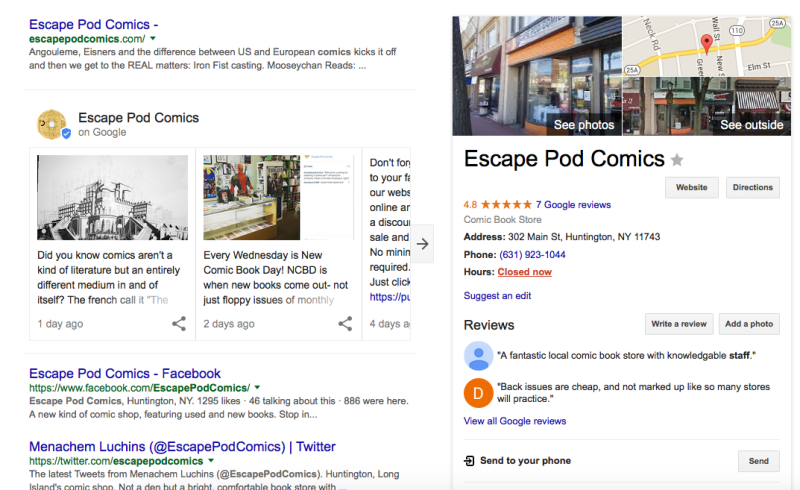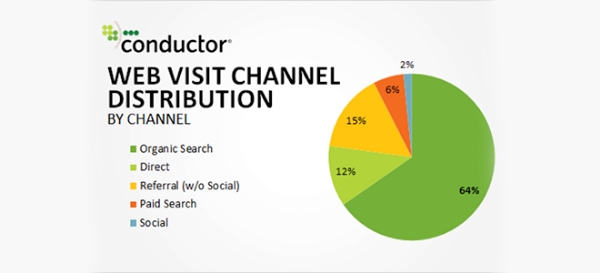
Google is experimenting with a new change that could up the profile of local businesses in the search results. The search giant is conducting a limited test featuring a new card carousel of results and content from local businesses near the top of search results pages.
Mike Blumenthal first noticed the test, but it has since been confirmed by Google. The “Local Business Cards” use the same functionality as Candidate Cards, which were recently launched. The main difference with this new test is how limited it is.
Currently, Google is only including a “few dozen” hand-chosen local businesses in the experiment. Instead of pulling the content being used to fill the cards from search engine content or Google My Business listings, Google is also using custom content for the cards.
This test is also notable for being the first time Google has allowed animation or GIFs on the search results pages.
On desktop, you can see the Local Business Cards directly adjacent to the Knowledge Panel featuring that business. On mobile, it is shown below the Knowledge Graph. You can see an example below:
The idea behind the new test is to allow businesses to stand out more in search results and highlight content or information about the business’s products or services in ways not quite possible through the Knowledge Graph. With this in mind, Google has also made content directly sharable from within the carousel.

Most likely this is an early test since Google chose such a small number of businesses and is using custom content to fill the cards. There’s no telling when or if Google will roll out the feature to a wider audience. Hopefully, the cards come soon, as they could be a huge benefit for local businesses that depend on organic search traffic.




